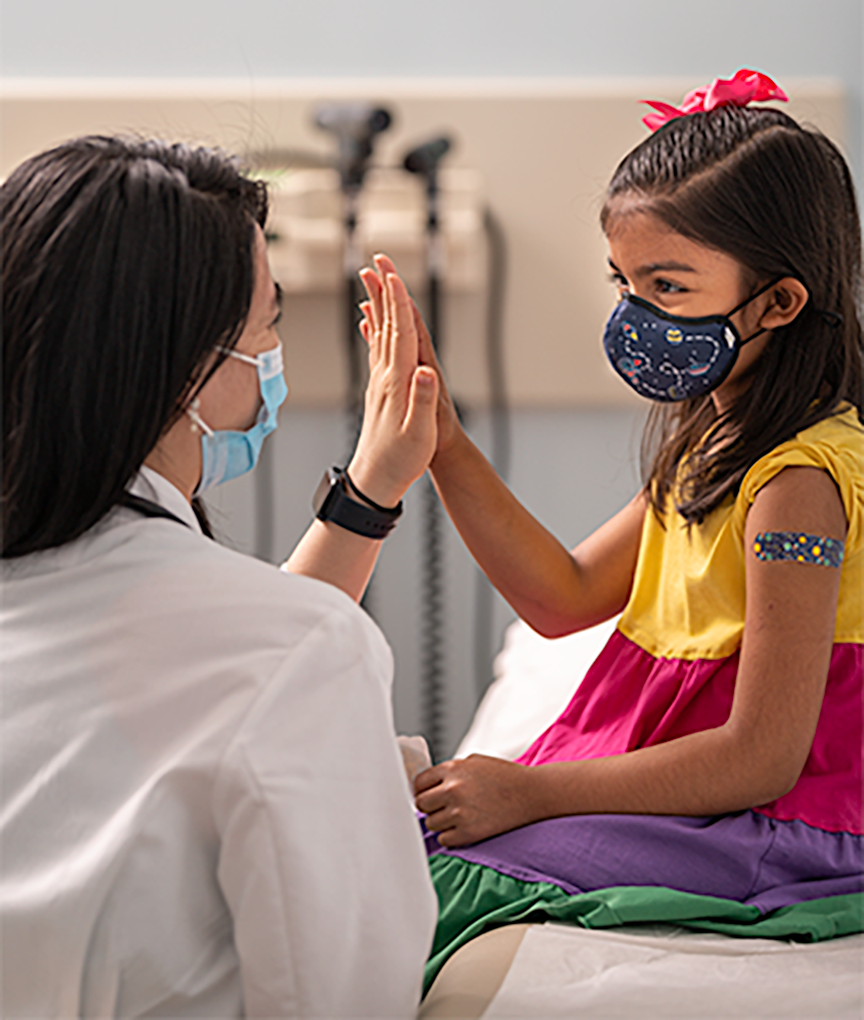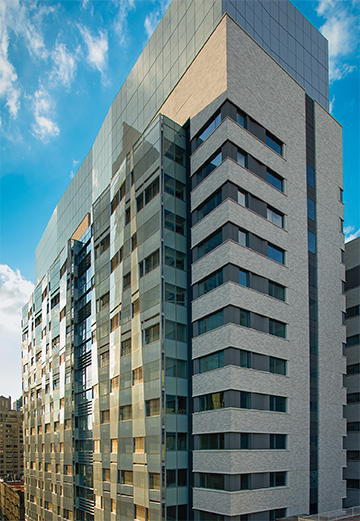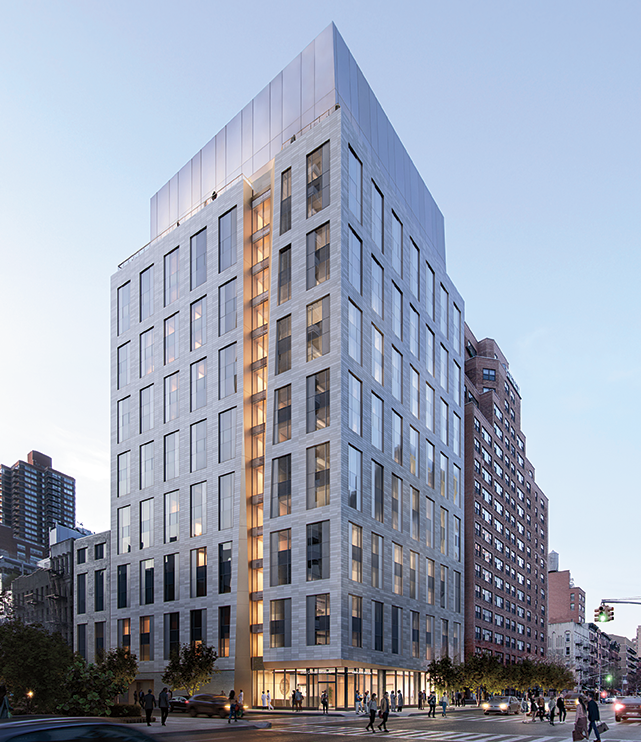
From foundational research to clinical trials, Weill Cornell Medicine's infectious
disease and immunology research impacts millions of patients' lives.
With a gift of more than $40 million from his estate, the late Francis Sorin has made a profound impact on Weill Cornell Medicine. One of the largest unrestricted planned gifts in the institution’s history, the bequest from Mr. Sorin – a grateful patient and an attorney, who established the gift in his will in 2019 – will advance several key priority areas of the We’re Changing Medicine campaign, helping to fulfill Weill Cornell Medicine’s ambitious goals as it transforms the future of health care.
One of the key priority areas of the campaign is an investment in infectious disease research, with a goal of establishing an expanded and integrated immunology enterprise.
The eighth floor of the Belfer Research Building will include expanded space for the laboratories of research collaborators Dr. Douglas Nixon, professor of immunology in medicine, and Dr. Brad Jones, associate professor of microbiology and immunology, and of immunology in medicine, who are working to find ways to harness the body’s defenses to cure HIV.
A portion of the gift from the Sorin estate will support the construction of pediatric laboratory research space for Dr. Sallie Permar, chair of the Department of Pediatrics and the Nancy C. Paduano Professor in Pediatrics, and her team, also on the eighth floor of the Belfer Research Building. Dr. Permar’s research focuses on the prevention of neonatal viral infections and the development of HIV vaccine strategies.
Unrestricted gifts, like Mr. Sorin’s, have an enormous impact on every aspect of the institution’s mission to care, discover and teach.
“I believe in the power of unrestricted donations because the institution knows best where the funds can have an impact,” says Ronnie Stewart, a donor and member of the Dean’s Council, a body that supports the Dean in advancing the goals of Weill Cornell Medicine. “These donations allow for flexibility, and they support the organization when plans and needs change. The emerging crisis of the COVID-19 pandemic is a case in point. In practice, an unrestricted gift enables the institution to shift resources in this sort of unprecedented situation.”
To date, the We’re Changing Medicine campaign has generated more than $112 million in unrestricted gifts, most of which has been allocated to high-profile areas, such as essential faculty recruitments, the new student residence, other critical infrastructure projects and an enhanced focus on the institution’s research endeavors.
These investments come at a critical time in infectious disease research, a priority area of the campaign, and will help facilitate Weill Cornell Medicine’s plans for its research enterprise. The Sorin gift will bolster the institution’s goal of transforming foundational, translational and clinical research by expanding and enhancing laboratory space in the Belfer Research Building, which has allowed for the recruitment of dozens of top-tier researchers and physician-scientists, such as Dr. Permar, Dr. Nixon and Dr. Jones. The building was constructed through the extraordinary philanthropy of the Discoveries that Make a Difference campaign and opened in 2014.
Belfer Research Building Fosters Expanded Research
Weill Cornell Medicine’s ability to uncover medical breakthroughs is rooted in its close collaboration between researchers and clinicians, who work together to bring the latest therapies to the bedside and integrate results of that work back into the lab. In addition to children’s health and infectious diseases, Weill Cornell Medicine’s physician-scientists are leading groundbreaking work in other areas, including precision health, cancer, women’s health and diseases that affect the brain, heart and metabolic system – all priority areas of the We’re Changing Medicine campaign.

Belfer Research Building
Through state-of-the-art, high-tech renovations of existing lab spaces, the addition of new labs in the Belfer Research Building and opportunities for continued laboratory expansion, Weill Cornell Medicine will create opportunities for new researchers and programs through a modern scientific infrastructure. The institution will also add dry lab space for data science, bioinformatics and other advanced technologies that will provide patients with unique, preventative health measures and treatment, as well as the vital expansion of clinical research programs that bring cutting-edge therapies directly to the patients who need them most.
New Residence to Enhance Student Life
The gift from the Sorin estate will also be critical in advancing the institution’s goal of investing in the next generation of health-care leaders. With plans to break ground on the new, modern student residence at the corner of York Avenue and East 74th Street in 2023, the Sorin gift comes at a critical time, allowing unrestricted funds to be allocated for urgent construction projects, such as this one.

The planned student residence at the corner of York Avenue and East 74th Street.
A Legacy Match Challenge, inspired by Mr. Sorin’s gift, will allow Weill Cornell Medicine to recognize donors’ future estate gifts now, enabling them to have an immediate impact on the campaign, through a special matching fund offer.
“Improving the student experience and making game-changing discoveries is what the We’re Changing Medicine campaign is all about,” says Dr. Augustine M.K. Choi, the Stephen and Suzanne Weiss Dean of Weill Cornell Medicine. “Thanks to Mr. Sorin and all of our generous donors, we will have extraordinary resources to provide our students with a superior living and learning experience, and invest in cutting-edge approaches that will illuminate the precise origins of disease and advance the study of health for all.”
